-
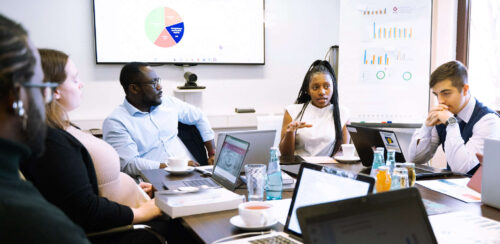 Projects
ProjectsOur Engagement
Our Engagement
Massai in Tansania
Friedensau Adventist University has been engaging for the Maasai in Tanzania for years. They are probably the most famous people in East Africa and are often portrayed as colorful and joyous. Unfortunately, however, they are confronted with great challenges.
There are around a million Maasai whose life has been made more difficult by climate change, water shortages, disease and many other factors. The originally nomadic pastoral people have settled down due to the loss of their flocks and due to official orders. Even so, it is forced to wander around because of water scarcity. By reason of the advancing climate change, rainy seasons are largely absent and well-tried watering holes are drying up. As a result, the life center of the Maasai - their cattle - is at risk. If the animals die, the families have lost their livelihood.
At the same time, the population has increased dramatically in recent years. Large families with more than ten children are not uncommon. Poverty, poor hygiene, high child mortality and infectious diseases such as tuberculosis or HIV make things even more difficult. The hopelessness for the many children is sobering.
We ask for a donation for the project in Tanzania
Friedensauer Hochschul-Stiftung
IBAN: DE53810205000001485400
BIC: BFSWDE33MAG
Keyword: Tansania
Further information and opportunities to get involvedWhy choose Tanzania as a destination for developmental and organizational aid?
The answer is obvious: On the one hand, the work of the first German Adventist missionaries bore much fruit here and is still valued. On the other hand, personal contacts and relationships with the country and its people play a role, but probably the most serious reason is the plight of the Maasai population. Since they are very scattered, there is little the local Church can do for them. However, through the cooperation of the Friedensau Institute of Mission Studies and the Tanzanian Union, the work gains sustainability and vitality.
This long-term cooperation of the students and the Institute of Mission Studies in Friedensau with the local Maasai, the Tanzanian government, the SDA Church in Tanzania, the World Bank and other organizations include, besides the proactive church planting, two other important areas of life: the sustainable improvement of the social conditions and the provision of access to education.
Thanks to the active support of the locals, there are now nine schools in the Longido area, in which around 500 Maasai children can learn Swahili, English, math, writing and reading. There they receive a warm meal every day and can also have pastoral care. Even today it still happens that the boys are taken out of school and brought to the mountains for traditional Maasai training, but rethinking is slowly starting. Parents have recognized the value of education and are ready to send their children to school.
Most of the work is done by the locals. In all areas they work for better educational opportunities and a future for their children. Friedensau Adventist University and the other cooperation partners provide support where necessary. Several Maasai villages have created the conditions for building schools themselves. They pay the teachers and send the children to school.This work gives more and more children a perspective for the future.
The local church is also involved in the projects
The communities started projects for widows and orphans and founded the women’s associations. It is here that women and girls in particular learn the basic skills needed to make a living themselves. The thirteen congregations that are being founded, create structures in which they can come together and shape projects together. Many are grateful for the friendship and cooperation. Anyone who has ever taken part in a trip to Tanzania comes back changed. No student goes home with the same attitude, with empty hands, or without new friends, and the authorities also repeatedly express their appreciation for the work of the team from Friedensau. Working with the Maasai is an incredibly deep and valuable experience that opens up new horizons for theology students and all other participants.
Cooperation with the Roland-Gymnasium in Burgen
The cooperation with a regional German partner in the field of education, the Roland-Gymnasium in Burgen, was able to fix a cooperation agreement in writing on February 8, 2019. This seeks to link the work of the FAU project group on site in Tanzania with pupils of a high school and thus making active development cooperation vivid. To this end (unless prevented from doing so by "Corona"), representatives of the FAU will travel annually to Tanzania with students from different departments on project assignments. The plan is for them to report on this to the students of the Burger Gymnasium in class or on project days and to accompany them on concrete media or climate projects. Teacher Ralf Sieber is organizing the collaboration with Burger Roland Gymnasium. The Project manager on the side of the high school is Dr. László Szabó, who has been in charge of the FAU’s work in Tanzania since 2009.
First successes of this cooperation are visible
The Roland-Gymnasium in Burg collected donations to co-finance a part of the administration building of the elementary school in Karao. Six students showed particularly strong commitment and interest in joining the annual study trip in 2020 and going to Tanzania with the FAU. They prepared to teach in the newly established elementary school. Geography, math, health education and other subjects and topics were on their curriculum. One of the students created an overview picture of the history of the collaboration, which now hangs on display in the school principal's office. Unfortunately, the 2020 project group was unable to travel to Tanzania because of "Corona" - and the students' activities were cancelled. However, it is planned that this trip (then with other participants) will be made up.
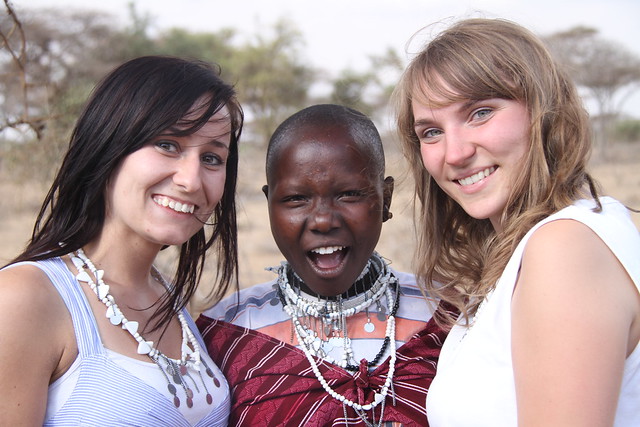
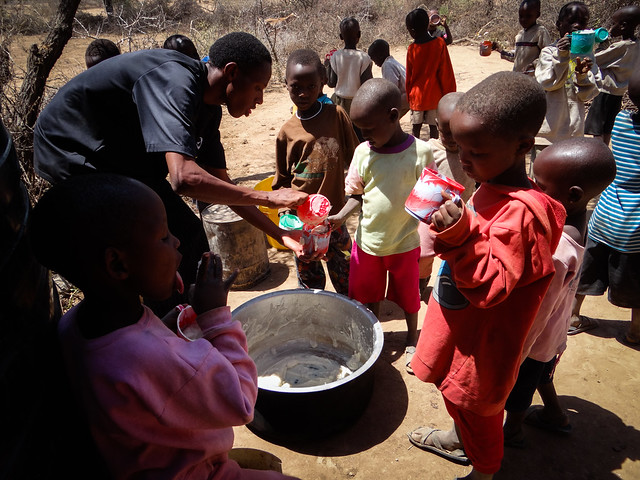
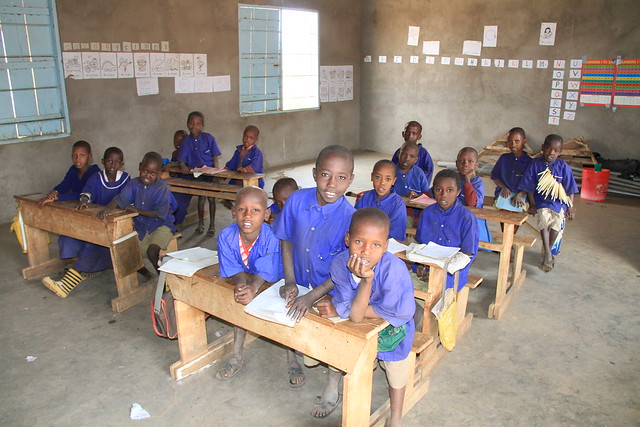
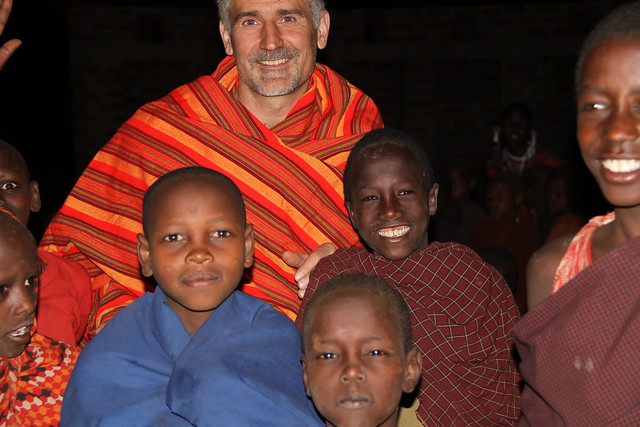
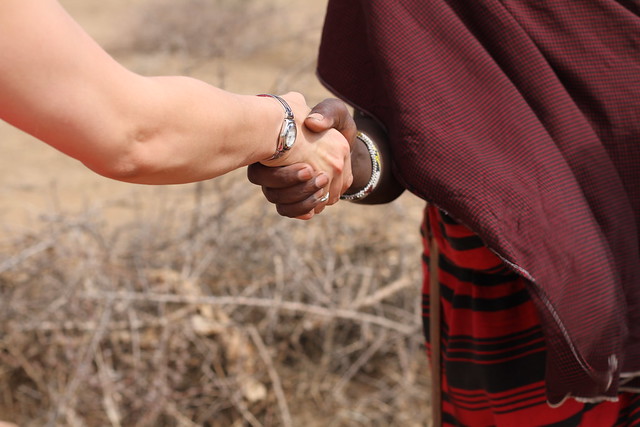
Encyclopaedia of Seventh-day Adventists
Research. History. Future
“The Encyclopedia of Seventh-day Adventists (ESDA) is a global church project that will produce an estimated 10,000 articles with accompanying photographs, media, and original documents. ESDA Online, the church’s first online reference work, will appear as a beta version in 2018, with the official site debuting at the 2020 General Conference session. This free website will live online indefinitely, to be constantly updated and expanded. The page you are on now is just a temporary site until ESDA Online goes live.
The Encyclopedia will be produced by the contributions of thousands of Seventh-day Adventists around the world. Friedensau Adventist University collaborates in this project by serving as a regional office for the Euro-Asian, Inter-European and Trans European Divisions.
All the articles concerned with these two divisions will be written on a voluntary basis by members from all walks of life with expertise on a given subject. The goal of each ESDA article is to be honest, open, comprehensive, and rigorous, representative of the diversity and richness of Adventism in Europe, and fully understandable to both church members and the public. Keep your eye out for announcements on the launch of ESDA Online as well as weekly featured articles that will be released leading up to it.”
“To know more, you can visit the website of the project here: encyclopedia.adventist.org“